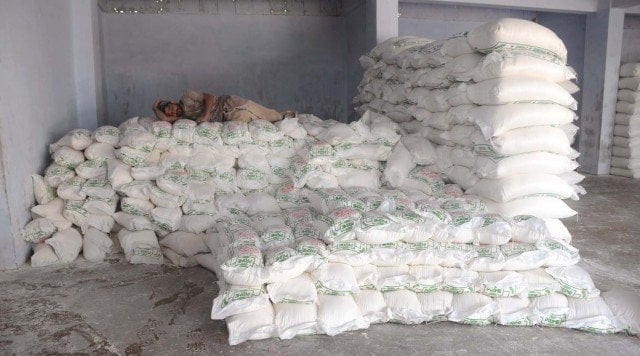Flour crisis looms in Punjab
Federal minister writes letter to Sindh CM, seeking end to ban on inter-provincial movement of commodity

A flour shortage crisis is looming in Punjab as Sindh has banned the inter-provincial movement of the commodity.
National Food Security and Research Minister Fakhar Imam has written a letter to the Sindh chief minister, requesting him to lift the ban.
In the letter, the minister has maintained that the ban on the inter-provincial movement of wheat imposed by the Sindh government was an unconstitutional move.
“This [ban] is in violation of sections 3 and 4 of Article 151 of the Constitution,” the letter read.
The minister added that the ban could cause a flour crisis in Punjab and requested the Sindh chief minister to personally take notice of the matter.
Punjab had taken up the issue of the ban during a meeting presided over by Prime Minister Imran Khan.
Last month, Punjab had turned to the Centre for assistance in form of 1.4 million tonnes of wheat in the wake of a burgeoning flour crisis.
However, the provincial government has asked for a cheaper rate for the imported wheat, insisting it would be unable to ensure affordability otherwise.
In a letter to the prime minister, Punjab Chief Minister Usman Buzdar sought the provision of 1.4 million tonnes of wheat from federal stock, but for a price of Rs1,400 per mann.
The Centre is already supplying around 1.5 million tonnes of wheat to both Sindh and Khyber-Pakhtunkhwa. However, the governments of both provinces have agreed to pay Rs1,985 per mann for the 300,000 tonnes of wheat the government has imported at the official level.
In his letter, Buzdar argued that the province had in the past met not only its own demand but supplied wheat to other provinces as well. He added that despite being short on the commodity this year, Punjab had not imposed a ban on inter-provincial wheat sale.
The chief minister also pointed out that his government had released 900,000 tonnes of government wheat to flour mills ahead of time in compliance with the federal government’s instructions. These mitigating factors justified a lower wheat rate for Punjab, Buzdar argued.
According to a provincial minister, Punjab could not bear billions of rupees in subsidies every month alone. “It has become very difficult for us to ensure flour is available at affordable prices under current circumstances,” he said.



















COMMENTS
Comments are moderated and generally will be posted if they are on-topic and not abusive.
For more information, please see our Comments FAQ